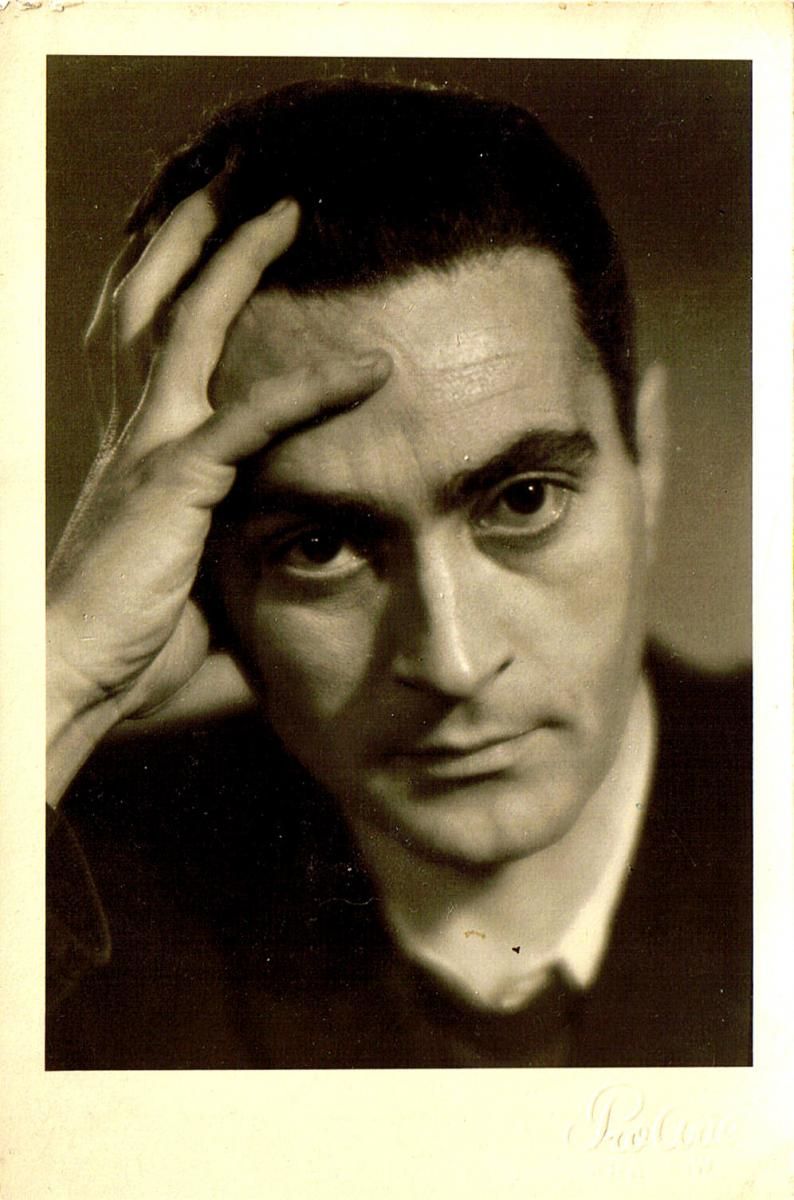Zdzisław Nardelli
Mediathek Sorted
![His debut as poet His debut as poet - „Świt na nowo” [Daybreak Anew], tomik poezji [volume of poetry], editor, F. Hoesick. Warsaw 1938, and poem entitled “Wyjazd” [Departure].](/sites/default/files/styles/width_100_tiles/public/assets/images/1._nardelli_swit_okladka_0.jpg?itok=XtuveBzH)
![Stalag VIII C in Sagan Stalag VIII C in Sagan - Reprint from the folder: Muzeum Obozów Jenieckich [Prisoner of War Camp Museum]. Stalag VIII C. Stalag Luft 3, edited by Muzeum Obozów Jenieckich, Żagań [Sagan] 2014.](/sites/default/files/styles/width_100_tiles/public/assets/images/2._zagan_folder.jpg?itok=rMCH1RCU)
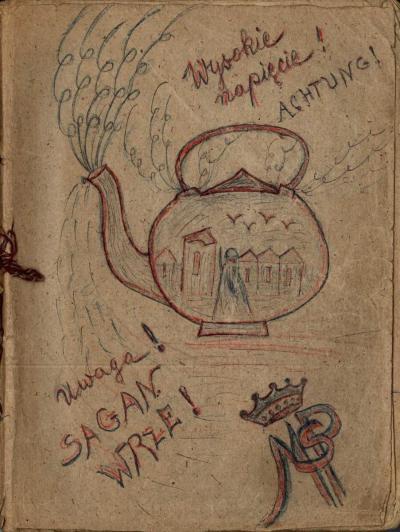
![Page with the triangular censor seal ‘tested’ of Stalag VIII C in Sagan Page with the triangular censor seal ‘tested’ of Stalag VIII C in Sagan - ‘Oczko we mgle...’ [A Tiny Eye in the Fog], in: ‘Szopka Sagańska’.](/sites/default/files/styles/width_100_tiles/public/assets/images/4._szopka_saganska.jpg?itok=EzGpZ0FL)
![Caricature of Zdzisław Nardelli Caricature of Zdzisław Nardelli - In: “Szopka Sagańskiej” [Sagan Nativity Play].](/sites/default/files/styles/width_100_tiles/public/assets/images/5._nardelli_karykatura.jpg?itok=koe6bqgv)
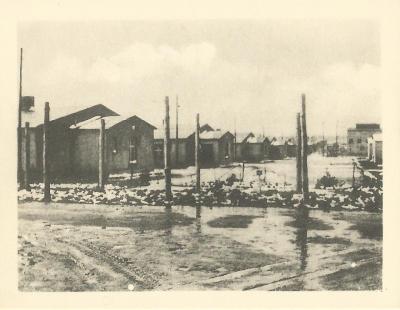
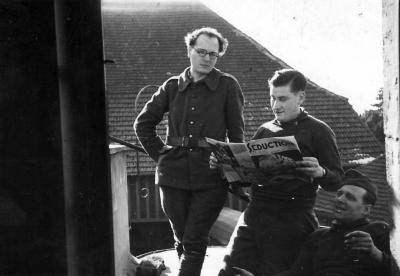
![‘Wieczór polski’ [Polish Evening] in Stalag VIII A in Görlitz ‘Wieczór polski’ [Polish Evening] in Stalag VIII A in Görlitz - The programme of the Polish Evening (cover), created by Bohdan Samulski.](/sites/default/files/styles/width_100_tiles/public/assets/images/8._wieczor_polski_1940_program_s._1-4_600dpj.jpg?itok=ZrxNTYFw)
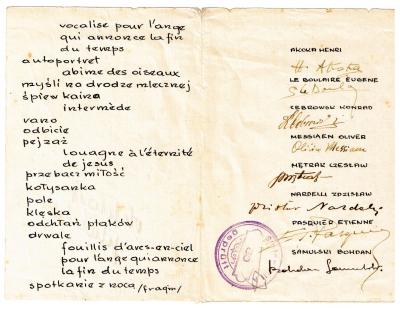

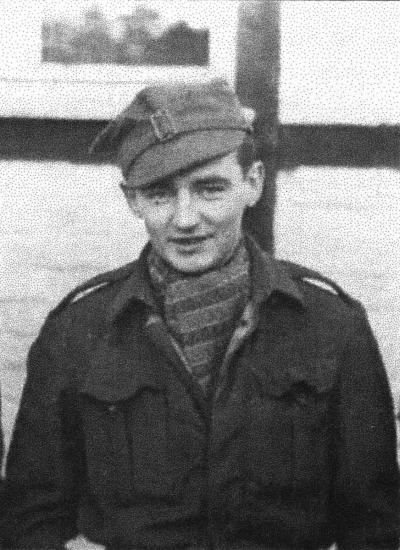
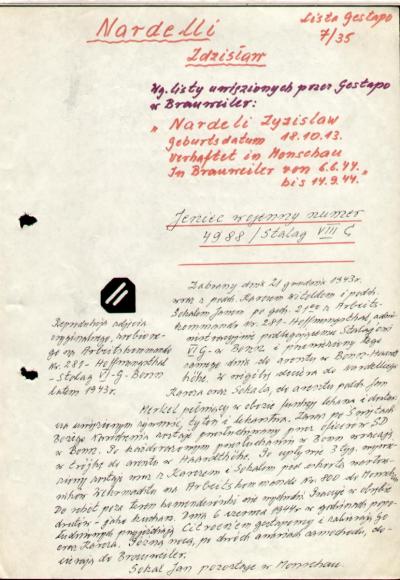
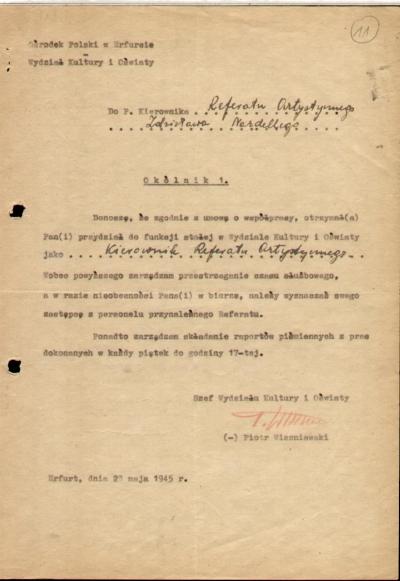
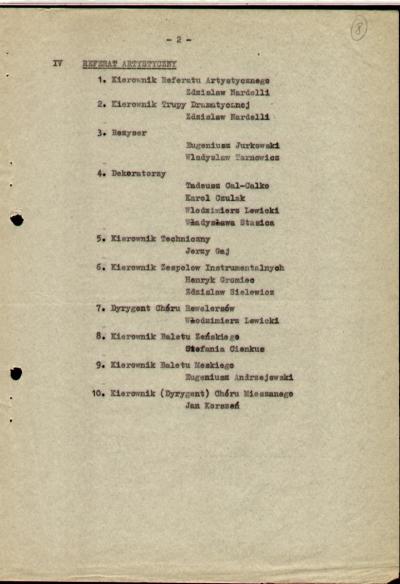
![Zdzisław Nardelli in the film by Antoni Bohdziewicz “Za wami pójdą inni…” [Others will be following you] Zdzisław Nardelli in the film by Antoni Bohdziewicz “Za wami pójdą inni…” [Others will be following you] - The only existing film reel in the FN..](/sites/default/files/styles/width_100_tiles/public/assets/images/15._z._nardelli_w_filmie.jpg?itok=HiQspfto)
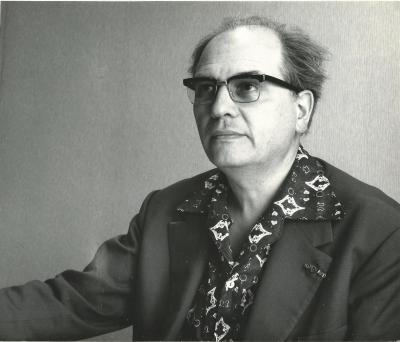
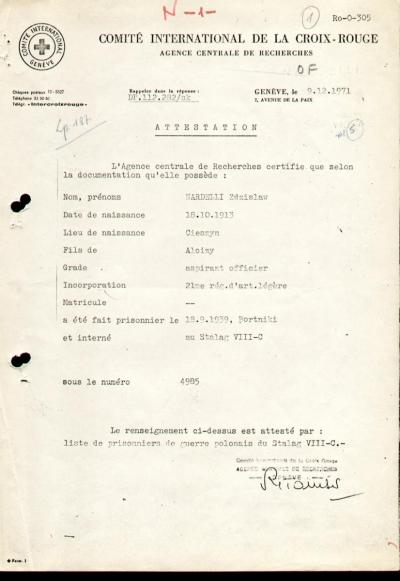
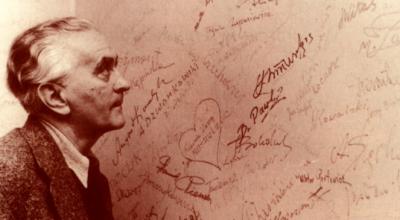
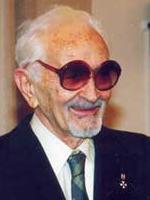
![“Pasztet z ojczyzny” [A Pie from the Homeland] “Pasztet z ojczyzny” [A Pie from the Homeland] - Cover.](/sites/default/files/styles/width_100_tiles/public/assets/images/20._nardelli_pasztet_okladka.jpg?itok=awWM9OsG)
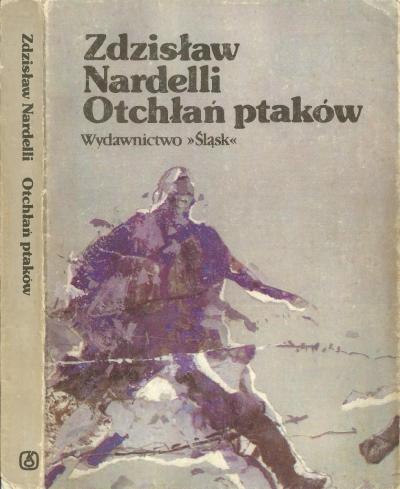
![Dedication written Zdzisław Nardelli for Jerzy Stankiewicz Dedication written Zdzisław Nardelli for Jerzy Stankiewicz - In a copy of “Otchłań ptaków” [The Birds’ Hell].](/sites/default/files/styles/width_100_tiles/public/assets/images/22._nardelli_1989_dedykacja.jpg?itok=LszHQZ-E)
![“Płaskorzeźby dyletanta” [The Bas-Relief of a Dilettante] “Płaskorzeźby dyletanta” [The Bas-Relief of a Dilettante] - Cover.](/sites/default/files/styles/width_100_tiles/public/assets/images/23._nardelli_plaskorzezby_okladka.jpg?itok=O3spRHrT)
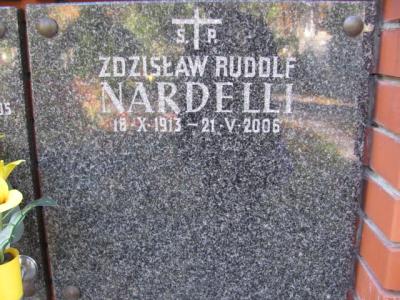
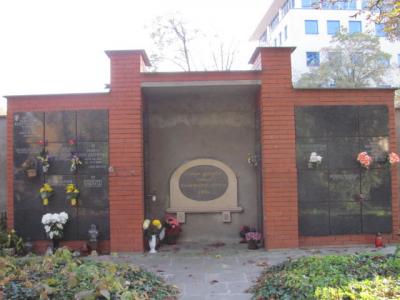

Nardelli’s imprisonment lasted considerably longer than the seven months endured by Messiaen. Indeed, it became ominously and increasingly dramatic until the end of the war. Along with his fellow Polish prisoners from Görlitz, on 3 February 1941 Nardelli arrived in the camp in Fullen (in Emsland on the borders of the Netherlands), that was a part of stalag VI B in Neu Versen. The POWs spent over two months here before they were moved to the camp in Hoffnungsthal. After the exhausting work in the Fullen peat bogs Nardelli perked up once more in the camp in Hoffnungsthal am Wahn (it was also a part of the complex containing Stalag VI B in Neu Versen). He was appointed to the post of theatre director by the Germans, gave lessons in the form of secret courses, participated in sabotage actions and operated with a conspiratorial cell of the Home Army. During this time he worked closely with Świętosław Krawczyński, who composed and arranged the music, as well as playing the piano for the shows in the camp. In this way the works of Nardelli and others were presented on stage. Krawczyński recalls this as follows: “[His art] was fairytale-like, full of humour, rhyming; hidden behind its grotesque symbolism was the conviction that a Polish POW could not be corrupted by a German.” There was also a world premiere production of the comedy Dom Otwarty [The Open House] and some revues by Michał Bałucki, which enjoyed great popularity amongst the audience because they reminded them of the small theatres and cabarets in pre-war Warsaw.
Unfortunately Nardelli decided not to conceal his left-wing views from his fellow prisoners in the camp, despite warnings from some of his comrades. There were many informers and hypocrites in the camps who, depressed by their circumstances and living conditions, tried to keep their heads above water at any price and even to improve their personal position. On 21 December 1943 Nardelli was arrested in the labour battalion number 281 in Hoffnungsthal, charged with communist activities and taken to the prison in Bonn. The ensigns Witold Karcz and Jan Sokal were also arrested with him. On Christmas Eve the Polish doctor and ensign Jan Merkel succeeded in supplying them with food, tobacco and medical articles. After Christmas, and a series of interrogations they were transported to a camp in Monschau, where Nardelli worked as a cook.
On 6. June 1944 some members of the Gestapo drove up in a Citroen, arrested Nardelli and Karcz and took them to another prison in Brauweiler. Jan Sokal remained in the camp because the Gestapo were no longer interested in him. Nardelli was taken before a war tribunal and condemned. He was thrown into prison in Monschau, where he remained until 14. September 1944, before being transferred to Cologne. Finally he was taken by the Gestapo to the concentration camp in Buchenwald, where he just managed to survive the last winter of the war. Nardelli succeeded in escaping from the camp in April 1945, shortly after its evacuation and subsequent liberation by American troops. After five years imprisonment under inhumane conditions he regained his freedom on German soil.
In May that year Nardelli arrived at the Polish Centre in Erfurt. This was the meeting place for Polish displaced persons, i.e. former internees in concentration camps, POWs and members of the Polish armed services. Nardelli took over the post of head of the “arts office” and organised a “theatre group”. That said it was not long before he decided to return to Poland as soon as possible. In mid-1945 he turned this decision into reality with two of his comrades, Tadeusz Findziński and Janusz Zarzycki. A warning by a guard on the border bridge aroused his anxiety, for he had called out:
“Where in the devil’s name are you returning to? Do you want to end up in Siberia? […] That was what a Polish soldier called out – wrote Nardelli – just as we were about to cross the border to kiss the soil of our fatherland…“





















































































